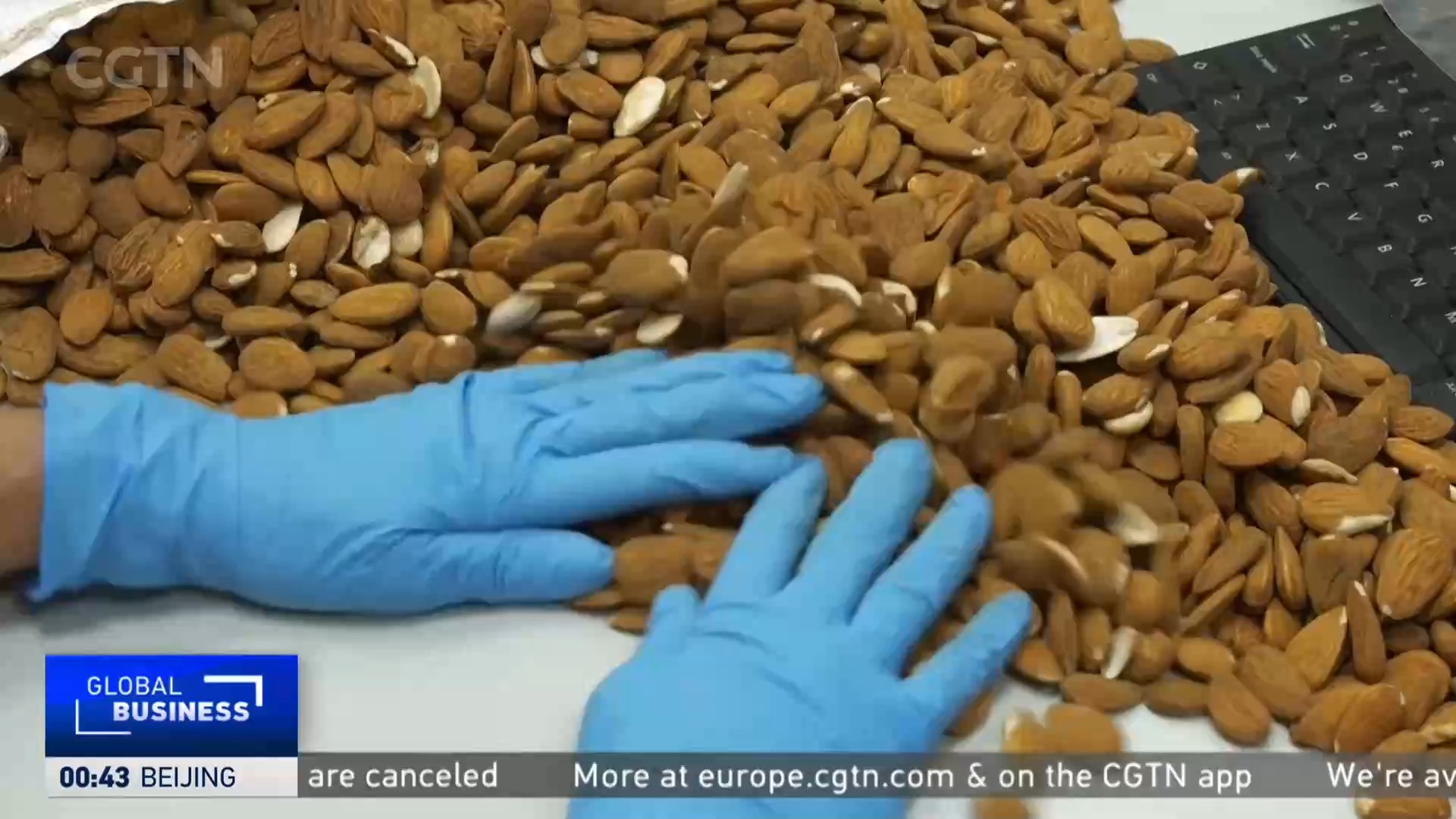02:44

From Tutankhamen's tomb to Greek mythology and the Bible to being tossed in the air for the bride and groom at Roman weddings as a symbol of fertility, the humble almond has come a long way.
The almond's origin story traces back to modern-day Jordan, Iran and China before the edible seeds were brought to the Mediterranean.
Now they look set to head back to Asia in huge quantities, thanks to a recent deal finalized by Spanish Prime Minister Pedro Sanchez in Beijing. Fifty thousand tonnes of Spanish almonds will be exported to China in 2025 with that amount almost doubling by 2032.
READ MORE
President Xi talks to Ukraine's Zelenskyy
Butt out: Cigarette pollution in Lisbon
EU living in 'fragile financial world'
Pedro Sanchez's visit to China last month brought a number of new agreements signed that will help Spain increase exports for its important agri-food sector. It's one of the country's most successful industries and they are looking to expand their market globally.
It's a boom for companies like Crisolar in Catalonia, an association representing over 24,000 almond growers.
"Fantastic news”
"Well, this is fantastic, great news,”Antonio Pont, President of Crisolar Dried Fruits, tells CGTN.
"Spanish farmers have a nice opportunity to sell our almonds into the China market. The trees that have already been planted in the last 10 to 15 years, this is why we expect by 2032 or even 2035, Spain can reach even larger crops – maybe more than 200,000 tonnes."
Spain is the world's second-largest producer of almonds, behind the United States, accounting for around 10 percent of the global total output.
This new export deal will earn their industry more than $650 million annually from China alone, as it looks to increase its agri-food exports on the world stage.

Drought and longer, drier summer seasons have caused a decline in production. /CGTN
Drought and longer, drier summer seasons have caused a decline in production. /CGTN
Climate change threatens almond harvest
Demand is on the increase globally for almonds, part of the world-famous healthy Mediterranean diet. But the industry is facing a major challenge – climate change.
Longer drier summer seasons and drought have caused a decline in the quantity produced. In some areas production has halved over the past five years because of drought, unseasonal frost, and extreme weather events.
The industry is fighting back by introducing new guidelines and promoting techniques like burying water drip-lines underground to help reduce water use. Many almond varieties in Spain have also been selected because of their more efficient water footprint, and drier regions like Almeria are now growing almond producers.
Using less water
Minda Tabuyo is the technical chief of Spain's Almond Association and insists that "almost 80 percent of almond production in Spain is now grown on dry soil.
"If you look at the data, you can see our method of production uses less water on average than other countries. All the farmers in our association are issued with guidelines on best practice when it comes to water use."
The Spanish government is hoping that recent bi-lateral agreements on almonds and fresh fruit will open the door to further opportunities in China as it looks to diversify into growing markets beyond Europe.
Subscribe to Storyboard: A weekly newsletter bringing you the best of CGTN every Friday